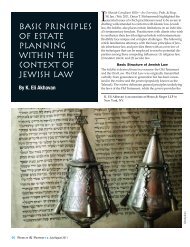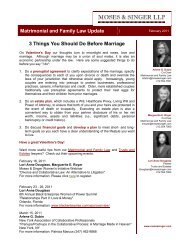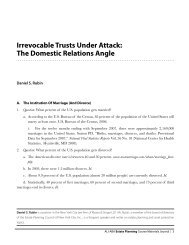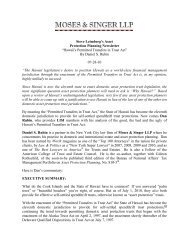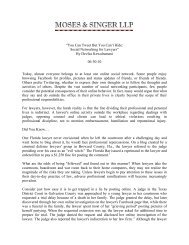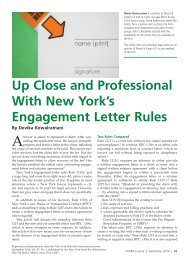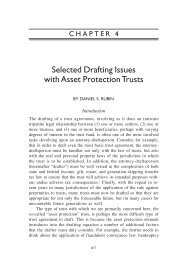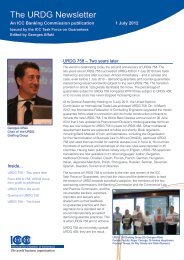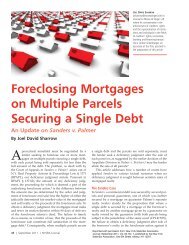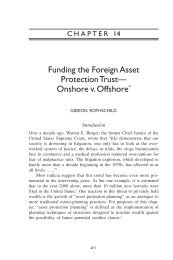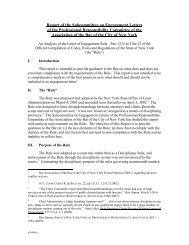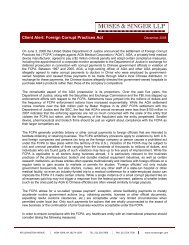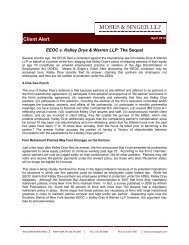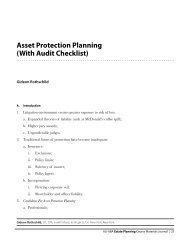Create successful ePaper yourself
Turn your PDF publications into a flip-book with our unique Google optimized e-Paper software.
ow EthicsBy DevikaKewalramani, J<strong>as</strong>on Canales and Michelle Coxrhymes with “death row.” This is a handy way to rememberhow carefully a New York lawyer should treat an escrow account.“Escrow”Unlike the American Bar Association Model Rules of ProfessionalConduct (the ABA Model Rules) and rules in other states, New York is theonly state whose ethics rules specifically prescribe disciplinary action formishandling escrow accounts. 1 In addition, New York lawyers are requiredto certify their familiarity with the escrow funds rule, Rule 1.15, when theybiennially register to practice. Clearly, when it comes to escrow funds heldby a lawyer, New York means business.Yet, despite these specific warnings, many lawyers still run afoul of Rule1.15. Some violations are deliberate and flagrant, but others are mere mistakes– subtle and unintentional. Irrespective of intent, however, lawyers whoviolate the escrow rules are exposed to censure, suspension or disbarment.This article reviews some common ide<strong>as</strong> about what constitutes ethicalconduct in handling escrow funds and suggests best practices to avoidviolations.Escrow Ethics: True or False?As long <strong>as</strong> lawyers do not commingle client funds, they have fullycomplied with the escrow rules.False: Implicit in the attorney-client relationship is a fiduciary and ethicalobligation to the client to properly handle client and third-party funds byestablishing and maintaining an attorney trust or escrow account. This dutyis governed by specific ethics rules. Avoiding the commingling of clientfunds is only one of the many duties under those rules.New York’s Rule 1.15 contains strict and strongly enforced rules forescrow accounts. It h<strong>as</strong> a long and detailed list of do’s and don’ts. In additionto prohibiting commingling client or third-party funds with the lawyers’funds (or, of course, misappropriating them), it requires:DEVIKA KEWALRAMANI (DKewalramani@<strong>Moses</strong><strong>Singer</strong>.com) is a partner at <strong>Moses</strong> & <strong>Singer</strong> <strong>LLP</strong>and co-chair of its Legal Ethics & Law Firm Practice group. JASON CANALES is an <strong>as</strong>sociate inthe firm’s Litigation Department. MICHELLE COX is an <strong>as</strong>sociate in the firm’s corporate departmentand is currently awaiting admission to the New York bar. David Rabinowitz, a partner inthe firm’s Litigation Department, contributed editorial <strong>as</strong>sistance.NYSBA Journal | May 2013 | 11



